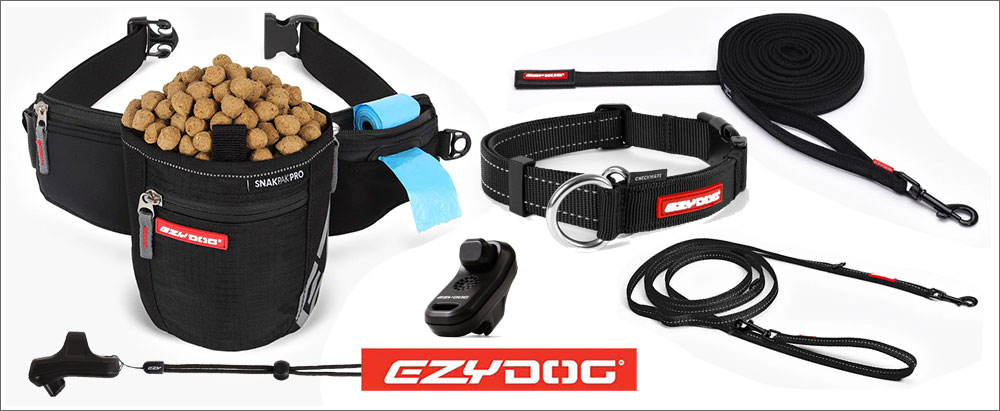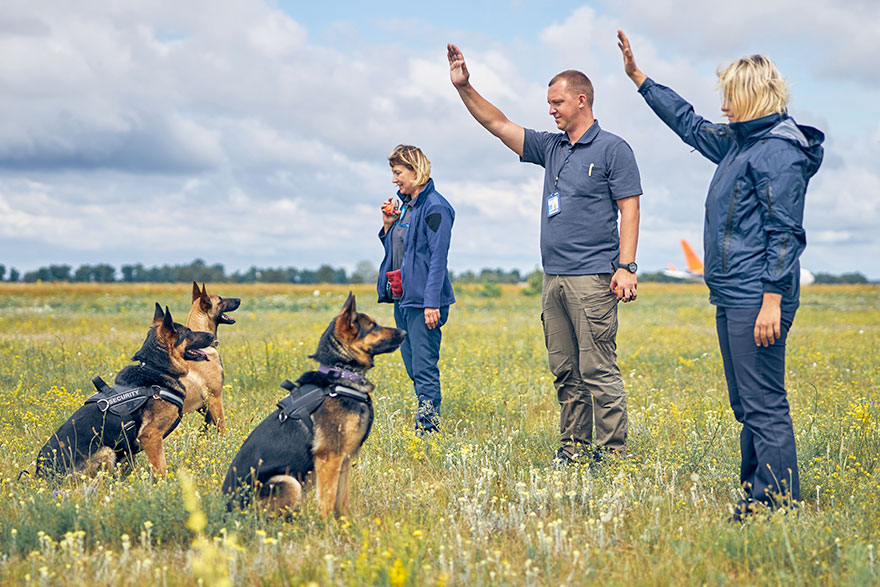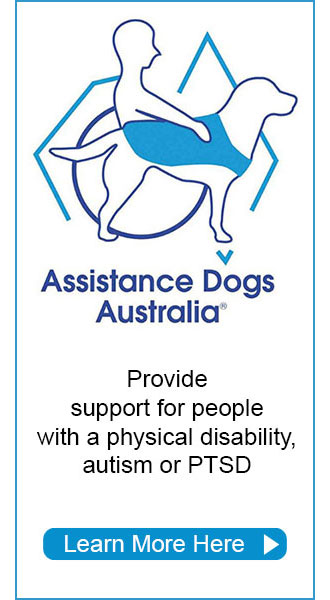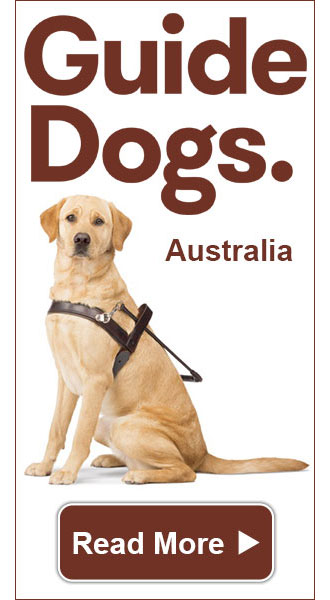
Sit Command (Dog Training Command 3)
- Share
- Share
- Share
- Share
How to Teach Your Dog to Sit Using The ‘Sit Command’.
Now that you can get your dog’s attention by calling his/her name, it’s time to add a reason with what’s a very basic but important dog command, and that’s getting your dog to ignore what’s going on around him/her and sit up straight, especially if they’re say 50 metres away.
Being in control of your dog is not only a responsibility all dog owners, it’s how the strongest bond is formed. Owners of larger breeds need to be even more observant with who’s around when their dog’s off the leash, so it’s important that if you anticipate the potential for a problem, you can call your pooch to sit, and they will obey your command without hesitation. It could also save their life.
This obedience training article for dogs will teach you how to train your dog to sit using the ‘Sit Command‘ by applying positive reinforcement training techniques.
The following list is what we recommend you have handy for this dog training command session:
- Small sized, soft treats that are very tempting
- Clicker
- Collar
- Training Leash, 5-10 Metres (16-32 Foot)
- Small quiet space with no distractions
If you don’t have, or prefer not to use a ‘clicker’, you can substitute it by using the word ‘yes’.

Dog training essentials available from Ezydog Australia
Steps to Teaching the ‘Sit Command’
1/ In a quiet room inside attach your longer training leash and grab a handful of treats.
I suggest ‘starting inside’ because there are less distractions, allowing your dog to concentrate on you. Outdoor noises and smells are intriguing to an inquisitive pup, even to an older dog, new to that environment.
2/ Start by standing about 2 metres away but infront of your dog. Say their name, then with a happy voice, use the command ‘sit’ while raising your right hand holding one of the treats above and over his head.
Your furry friend should look towards you, then, look up, following your hand with the treat until he/she will naturally sit down with his/her head looking up.
3/ As soon as your dog sits back on his bottom, mark the moment with your clicker, or say ‘yes’ then while offering the treat, praise him/her with lots of ‘good boy/girl’ remarks followed by hugs and rubs.
4/ Repeat, and keep repeating this process, moving further and further away from your dog each time.
5/ Now take the leash off and repeat the process without the treat in your right hand. Call his/her name and as your dog looks at you, say ‘sit’ and with the palm of your hand flat, facing your dog, starting about waist height, raise your arm finishing just above your head height.
As your dog assumes the sitting position, mark the moment with your clicker, or say ‘yes’ then while offering the treat from your left hand, praise him/her with lots of ‘good boy/girl’ remarks.
In addition to the voice command, we are introducing the hand sign as well.
6/ Repeat this all over your house, again moving further and further away from your dog each time.
7/ If your dog has responded quickly to the training, finish off your training session by repeating the procedure outdoors in your garden, first on a loose leash, then off.

Practice with just the voice command, and with both the verbal command and hand signal.
Even though this is an easy command, and quite natural for a dog to perform, patience may be required with some breeds that are more ‘nose strong’, such as Beagles, especially to start with.
8/ Once your four-legged friend sits immediately on command at home, repeat the process using your long leash on a walk around the neighbourhood or local oval.
Dog parks that are fenced off are great places to try your dog’s newly developed skills without a leash.
Start being close to your dog, then see how far away you can get.
It’s important to remember that even if your pooch sits obediently 100% of the time indoors, outdoors and away from the familiar backyard is a whole new ballgame.
Using hand signals is an important addition, especially with windy conditions, people with soft voices and distances exceeding 25 metres.
Summary of Teaching Your Dog The ‘Sit Command’
Consistency, practice and patience are the keys with all dog training. It’s also important not to keep repeating the command. You should aim to say it once to have your four-legged friend sit on command, however close he/she may be.
Some dogs that aren’t overly motivated by food treats (rare) will almost certainly take to cooked chicken pieces. However, I would strongly suggest finding a commercial option that works because apart from the expense, chicken is messy and doesn’t last very long out of a sealed container in the fridge. There are many brands and flavours to choose from these days, and many are made with healthy natural ingredients. I would also suggest using and rotating several different types, so your dog doesn’t become used to just one.
As I mentioned above, using a training leash of between 5-10 metres is ideal. These leashes are used extensively for ‘track and trace’ dog training disciplines so are readily available.
Most pet shops, which you can find near you, listed on Pet Directory will have these in stock.
It’s worth noting that the longer leash isn’t to reel your dog in if they ignore you, but to control the situation. As you walk, simply gather up the leash, getting closer to your dog. Slowly give your furry companion more distance each time, before calling their name and commanding them to sit.
Having trouble, or have a question about getting your dog to sit when commanded?
Leave a comment for ‘Bear’ below and he’ll be happy to answer it for you, especially if you get his attention by using his name.
We at PetsBook also recommend getting out with your dog and join a training course.
Pet Directory has many local dog training businesses listed near you with experienced and accredited dog trainers ready to help you with dog obedience and dog command training.
» List of Dog Training Commands

Hi, I’m Bear, the Training Manager at PetsBook. With over 20 years experience using positive reinforcement dog training techniques, I’m proud to have the opportunity to help you develop a stronger bond with your fur baby, by teaching you useful commands with obedience training.
- Cat Behaviour & Training 1
- Cat Care 1
- Cat Health 1
- Cats 3
- Dog Behaviour & Training 38
- Dog Care 1
- Dog Grooming 2
- Dog Health 1
- Dogs 42
After A Product or Service for Your Pet?
PetsBook's Pet Directory is the easy way to find everything you need to take care of your 'fur baby'.
ABN: 97 675 528 953








